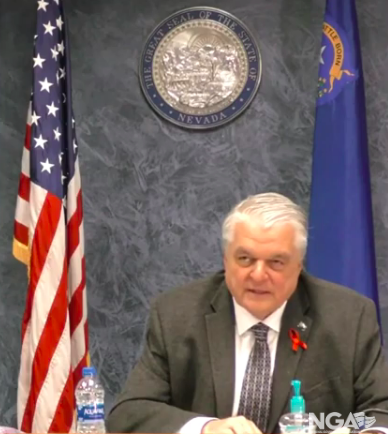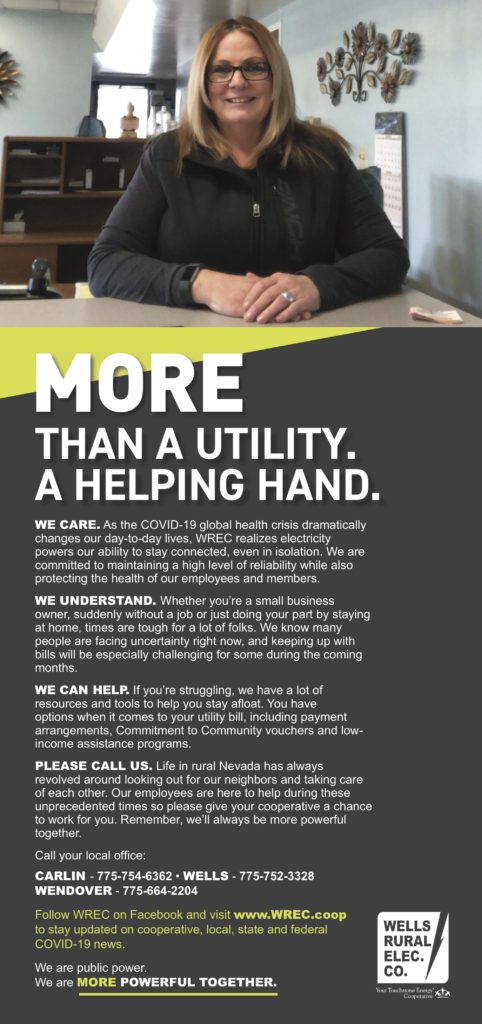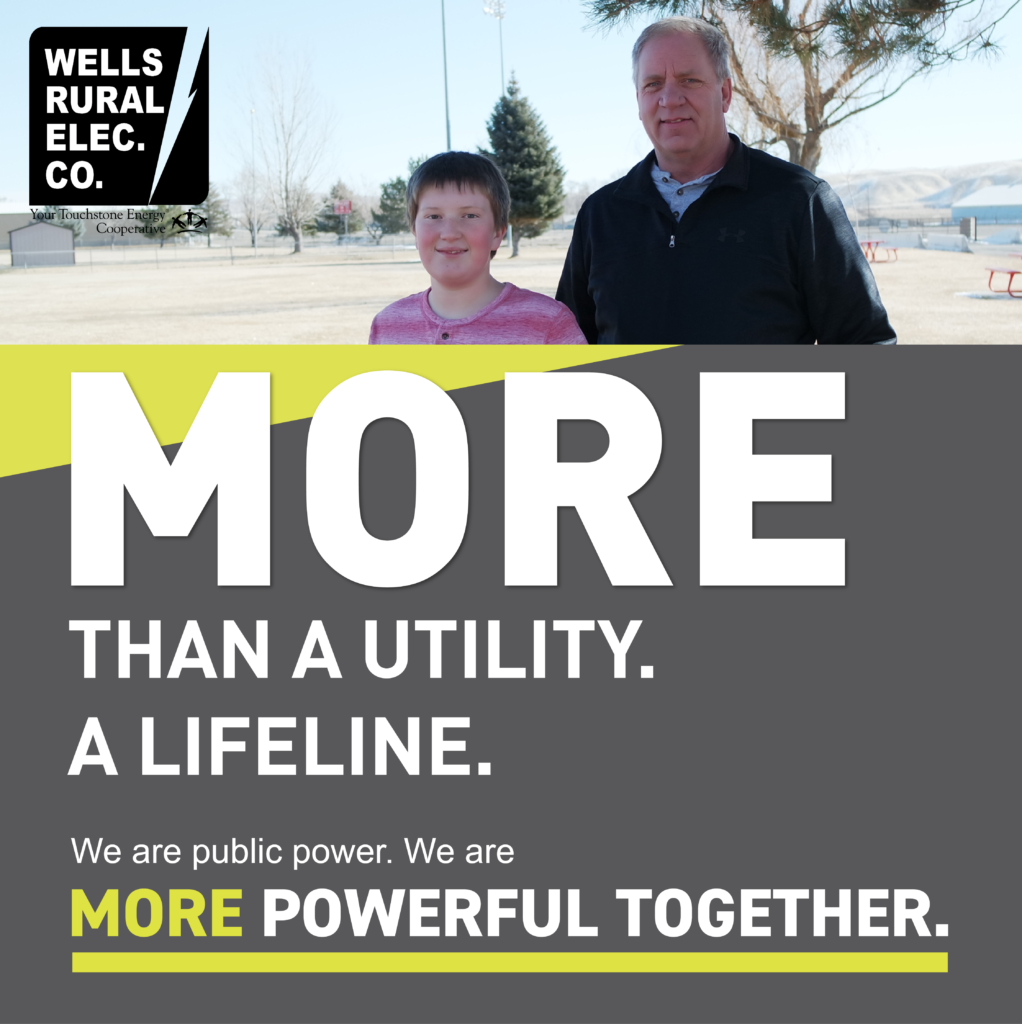
Published in the high Desert Advocate Newspaper April 14, 2020, Edition
(Las Vegas, NV – April 8th, 2020 new Directives)— Today, Nevada Governor Steve Sisolak held a press conference announcing a new emergency directive expanding his social distancing emergency directives.
Directive 013, a guidance document corresponding to the directive and a guidance document for grocery store personnel and can be found online as well.
The Governor’s full press conference can be found on his YouTube page:
The Governor’s full prepared remarks related to Directive 013 are as follows:
Next, I’m going to go over a few updates, including a new directive I signed today
expanding the places and situations to which our previous directives on social distancing and gatherings should apply. Before I get to the those, I wanted to quickly mention two items that happened yesterday.
First, the Interim Finance Committee met virtually on Tuesday and approved $6.25 million in state funding to help pay for battling the cost of COVID-19. This funding was approved by the Board of Examiners last week. This will help us leverage federal funding to purchase more PPE and other essential needs to battle COVID-19.
The committee also approved releasing $2 million in settlement funds to United Ways to help Nevadans with rent assistance.
From the beginning, I’ve been transparent about my goal: mitigate the spread of COVID-19 to save lives and protect our health care system from being overwhelmed, which could lead to disastrous and deadly results.
As I mentioned the other day, we have been getting briefing on multiple different models and projections for Nevada, and we also pay close attention to what’s happening in other states, particularly in hot spot zones like New York.
What the data shows us is if we slow down the spread, we have a real chance of avoiding a situation where we overwhelm our health care system. The key to all of this is strict social distancing – it’s the only way.
Our Medical Advisory Team has informed us that it’s not just distance that matters, but also the amount of time an individual spends next to an infected person.
And remember, someone can be infected without exhibiting symptoms. There are other lessons we have learned from other states. We see, for example, some states have allowed for religious services to continue without restriction, which has been followed by a spike in new infections. We cannot allow that to happen in Nevada.
We also know that even essential businesses can do a better job of implementing social distancing safeguards.
And while I still encourage outdoor activity as much as possible, we understand that some activities have unnecessarily become high-risk due to people circumventing the intent and acting as if they are not susceptible to becoming infected.
This is serious folks, and I know that the vast majority of you understand that and are doing your part. You’re looking out for your neighbors, your families, and the health care workers whose health depends on you.
But there’s more we can do to help them, and it’s our responsibility to do so. That’s why, today, I signed a directive to further limit social distancing in a variety of contexts.
First, I am ordering sporting and recreational venues that encourage social congregation, including golf courses, public basketball and tennis courts, and publicly accessible swimming pools to close for the duration of the State of Emergency. This order does not prevent you from shooting hoops on your own basket or swimming in your own pool – this is strictly about publicly accessible venues.
Second, this directive requires showrooms at essential businesses that are used to display goods for sale, including but not limited to cars and household appliances, to close to the public. You can still buy these items if the business delivers to your home, but showrooms encourage customers to wander around and touch products, and that sort of shopping experience can lead to a higher likelihood of spreading disease. That’s just common sense.
Third, those businesses that are continuing operations must provide adequate protections for their workers and adopt sanitation protocols that minimize the risk of spread. This is a common-sense measure to ensure businesses that are operating, do so safely.
Fourth, “open house” showings of real estate properties for sale, and showings of homes occupied by renters, are now prohibited. I want to be very clear: You can still buy and sell a home. Real estate agents can still use technology to virtually stage a home. And you can still make an appointment to see a house in-person if it’s not occupied and strict social distancing guidelines are met, but realtors can no longer open a house for a period of time for multiple prospective buyers to visit. I appreciate the assistance of the Realtors Association of Nevada in helping to craft this solution.
Fifth, licensed barbers and stylists are prohibited from offering in-home beauty services other than to those in their household. In my previous directive, barbershops and hair salons were designated as non-essential. Bringing those same services to someone’s home and creating a heightened risk of exposure circumvents the very rationale behind our stay at home directive.
Any time you open your home to someone not in your household, it increases the risk of spreading COVID-19. Don’t do it unless it’s for an essential purpose. I haven’t had a haircut in over 6 weeks. I’ve adjusted, and the First Lady is still sticking by my side. We can do this.
We also took a hard look at our essential businesses providing services or selling goods to the public, including grocery stores, to ensure they were providing as safe an environment to the public as possible.
As part of this directive, I am prohibiting all grocery stores from offering self-serve food stations, salad bars, or other unpackaged bulk dry goods to customers. Unpackaged bulk dry goods are things like nuts, seeds, candy and coffee that are sold by the scoop in large containers at some grocery stories. We don’t want customers touching and retouching the same scoop handles over and over again, jeopardizing the health and safety of all those who utilize these stores.
And right after I’m done here, the Nevada Health Response Center will issue new guidance to ensure grocery stores are maintaining proper social distancing standards, cleaning guidelines, and other protective measures for employees and customers.
Finally, after a lot of thoughtful discussion and guidance from the Medical Advisory Team, my legal team, and faith leaders from across our State, I have decided to place new limitations on participation in in-person worship services.
This wasn’t easy. In these trying times, I have clung to my faith to guide me, as I know many of you have as well. It is not lost on me that we are entering the most holy periods of many of the major religions. I know families want to gather to observe these High Holidays (including Passover tonight and Easter on Sunday). But I know that if we allow these services to continue as usual, we will see a spike in cases in Nevada, just like we’ve seen in other states. Clusters will appear where people congregate.
You might have heard about a religious congregation near Sacramento, California that health experts believe was the epicenter of a COVID-19 outbreak. The church building that congregation belonged to had actually closed its doors on March 18th, but small group religious gatherings in people’s homes led to an outbreak of at least 70 people.
This outbreak example is in addition to the many examples across this country where religious gatherings at places of worship have led to COVID-19 outbreaks among their congregations.
We are living in unique times, and the science tells us that putting large numbers of people close together during a pandemic for any reason — religious, cultural, economic, or recreational — is an invitation for a disease to do its worst.
That’s why, this new Directive makes clear that places of worship are prohibited from holding in-person worship services with 10 or more people, including drive-in and popup services, for the duration of the Declaration of Emergency.
Religious leaders are encouraged to find alternatives to in-person gatherings, such as Internet streaming, to avoid endangering their congregants.
This was not an easy ask of Nevadans. As someone who has attended Catholic services my entire life, I fully appreciate the power of in-person services. Hearing a sermon.
Speaking with a pastor, rabbi, imam, or other religious leader. Being surrounded by a community of spiritual followers.
Religious services are designed to pull people together, to congregate, to commune, to pray. They’re held in sanctuaries — safe spaces. They help us heal. I know how difficult this will be.
I want to thank all of the faith leaders throughout Nevada who I was able to talk to today. Your support and guidance helped me make this challenging decision, and I know you’ll all help keep the faith alive and as strong as ever as we navigate these times.


